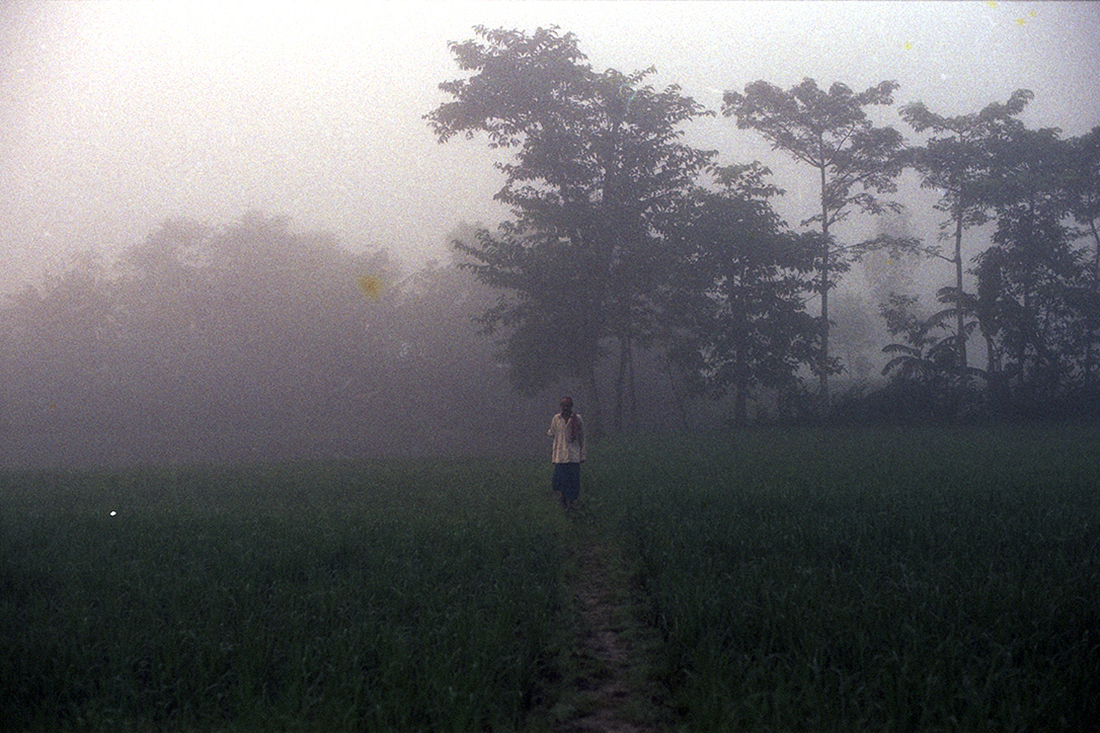Documentary - NOMINEE: Partha Sengupta
Partha Sengupta
The Bloodiest Border
Support this photographer - share this work on Facebook.
I’m descendant of a refugee family from East Pakistan (now Bangladesh). During the British rule, Bengal was a vast land of various creeds, cultures and traditions with a common language Bangla.
During Partition of India in 1947, an international border was redrawn to separate the Bengal province into East Pakistan (now Bangladesh) and West Bengal (in India). The border changed the social fabric of the vast land with a new nationality with a strong sectarian belief. Since then the border denotes the presence of heavily guarded paramilitary forces; human rights abuses and suspicions.
In the Indian side, Border Security Force (BSF) of India manages the international border between West Bengal in India and Bangladesh. Their approach towards the people in the border area is always with deep suspicion carried out with extrajudicial killings, custodial death, torture and abduction. Prevalence of cross border smuggling and infiltration in this region, the security forces justified their atrocities regardless of nationality. For their notoriety as “Trigger Happy excessive use of force”, in 2011 Human Rights Watch cited Bengal border as the bloodiest border in the world. There are many incidents of Indian residents at the border area killed by the security forces, the body was thrown to Bangladesh territory, to prove elimination of an infiltrator.
The similarity of look and language at the border area people has led to confusion of identity with regards to their nationality. Security forces had little understanding of the people and history of this region, justified their atrocities to be the only option to deal with the border people. Their own national identity is debatable as well as the agonizing impact on their lives.
In November 2014, I travelled to Bangladesh for the first time, as an Indian underwent immigration procedures being a foreigner. Whereas, once Bangladesh was the natural place of my parents and family home was there. The partition, the line demarcated between new the neighbourhoods, had changed the status of millions of uprooted people from their homelands. They are like my parents who are now 'foreigners' into their erstwhile homelands. The generational old identity of our family, like many others, has ceased to form with their arrival in a new place which was unknown to them. The British Colonial Rule and the partition brought a sense of communal identity and animosity with the changes in Hindu-Muslims relations. The animosity strengthens over the years that is well reflected in the border management policy of BSF. India and Bangladesh are friendly neighbours. But Bangladesh is a Muslim country formed out of Pakistan, the archrival of India, the policy didn't differ in the border management rather it is cruel in comparison to other bordering places in India.
My project is the exploration of borders and its impact on the lives of the border people, where one’s own national identity is debatable. BSF does not view Indian nationals as a citizen. It raises the critical questions about the idea of border is enforced, the complexities of history live, culture and nationalists imaginary.
About author:
Partha Sengupta
(b. 1975, Calcutta-India)
Is an Indian documentary photographer currently based in Calcutta.
He began to study photography self-taught until he decided to study documentary photography at Counter Foto, Bangladesh under the mentor Saiful Huq Omi. Having a short stint with a local daily newspaper in Calcutta, he decided to start producing his own reportages as a freelancer, focusing on social and human rights issues. In the course of his photography skill enhancement had attended photography masterclass program under Muneem Wasif and Shahidul Alam. In 2012, Partha's images were selected part of the Asian Cultural Heritage in Montreal, Canada. In 2014, he had selected among fourteen young photographers by DWIH (German Science & Arts) German House for Research & Innovation for a photography project in India. His work along with other photographers also published in the book 'The India Vision Quest' by DWIH in 2015. His works had been exhibited in Calcutta, Dhaka, Ahmedabad, Delhi, Montreal and Cologne. In 2018, he was one of the four finalists received Grant from Serendipity Arts Foundation at New Delhi in India.
Partha did his post-graduation in Finance. Prior to being into professional photography, he used to work as an investment banking/consultant in major financial institutions in India for almost fourteen years.
Partha is currently working as a Freelance Photographer.

